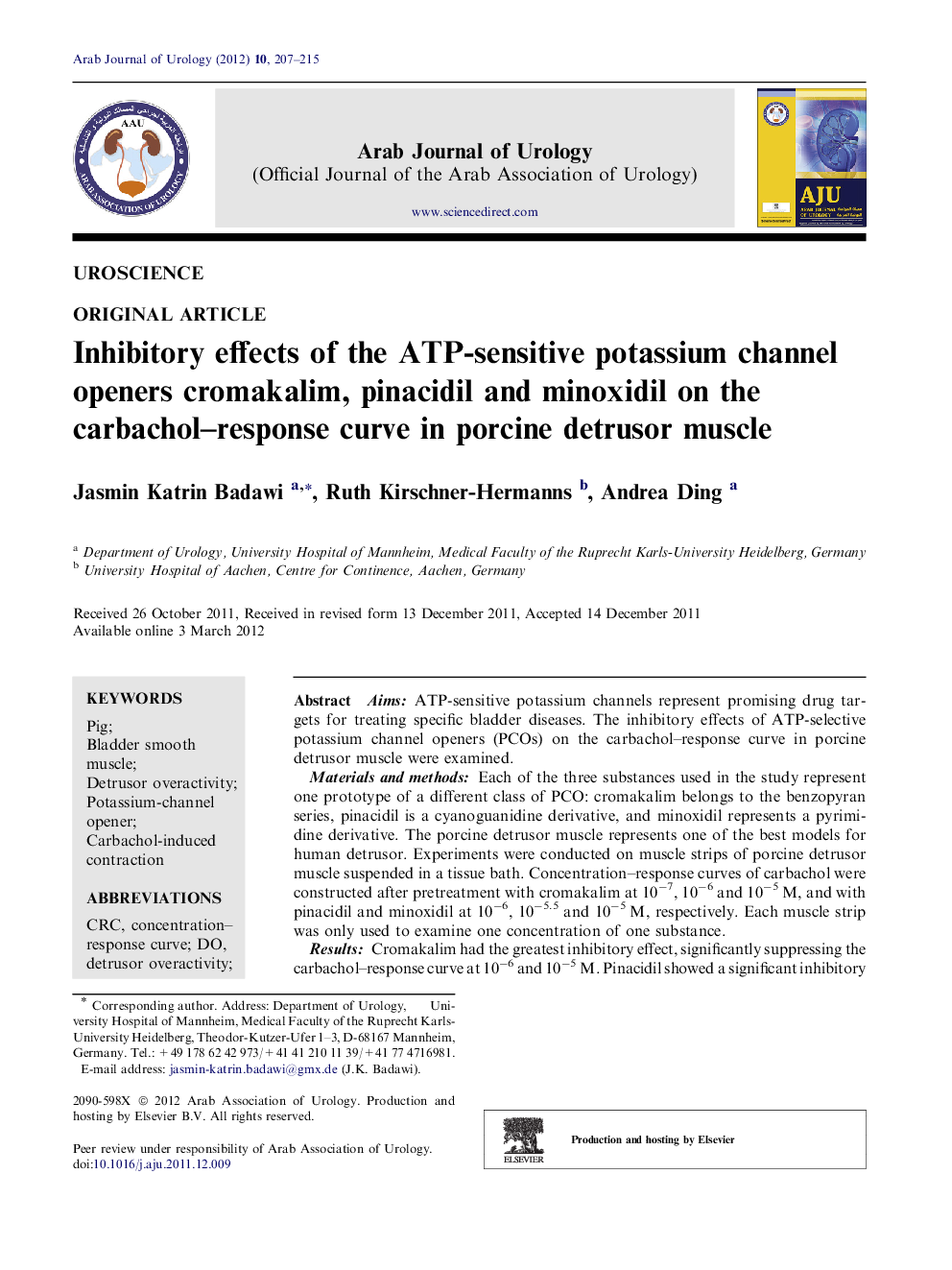| Article ID | Journal | Published Year | Pages | File Type |
|---|---|---|---|---|
| 4268186 | Arab Journal of Urology | 2012 | 9 Pages |
AimsATP-sensitive potassium channels represent promising drug targets for treating specific bladder diseases. The inhibitory effects of ATP-selective potassium channel openers (PCOs) on the carbachol–response curve in porcine detrusor muscle were examined.Materials and methodsEach of the three substances used in the study represent one prototype of a different class of PCO: cromakalim belongs to the benzopyran series, pinacidil is a cyanoguanidine derivative, and minoxidil represents a pyrimidine derivative. The porcine detrusor muscle represents one of the best models for human detrusor. Experiments were conducted on muscle strips of porcine detrusor muscle suspended in a tissue bath. Concentration–response curves of carbachol were constructed after pretreatment with cromakalim at 10−7, 10−6 and 10−5 M, and with pinacidil and minoxidil at 10−6, 10−5.5 and 10−5 M, respectively. Each muscle strip was only used to examine one concentration of one substance.ResultsCromakalim had the greatest inhibitory effect, significantly suppressing the carbachol–response curve at 10−6 and 10−5 M. Pinacidil showed a significant inhibitory effect at 10−5.5 and 10−5 M, which was smaller than that of cromakalim. Minoxidil did not significantly inhibit the contractions at all examined concentrations.ConclusionsThe examined ATP-sensitive PCOs belonging to the benzopyrans and cyanoguanidines significantly suppressed detrusor contractions. The development of derivatives of these prototypes could open new possibilities for the pharmacological treatment of selected bladder diseases.
